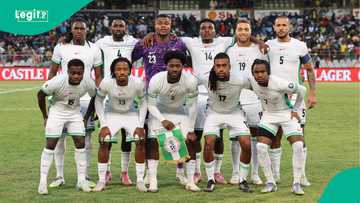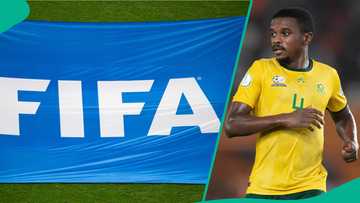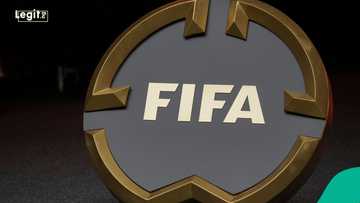FIFA Announces New Change From Next Year After South Africa vs Nigeria Clash
- FIFA has announced a change in the football calendar, merging the September and October international windows
- Starting from 2026, countries will play more matches in September, with a few games set to be held in November
- Player welfare, travel concerns, and the 2026 World Cup scheduling were some factors behind the calendar change
FIFA has announced a major change to the global football calendar, confirming that, from 2026, the traditional September and October international breaks will be replaced with a single, extended window.
This decision from football's governing body comes almost two weeks after the Super Eagles and Bafana Bafana met in a hotly contested 2026 FIFA World Cup qualifier in Bloemfontein on September 9, 2025.
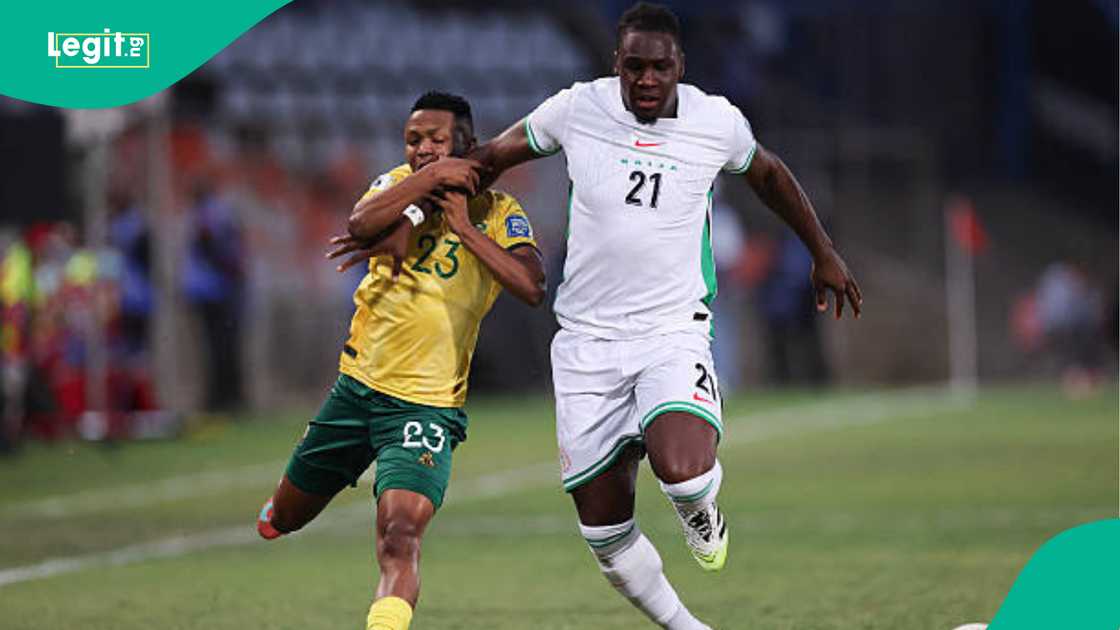
Source: Getty Images
Nigeria held RSA to a 1-1 draw three days after defeating Rwanda 1-0 at the Godswill Akpabio International Stadium in Uyo.
Neither result was good enough for the Super Eagles as the chance to qualify for the 2026 FIFA World Cup is now out of their hands, with Eric Chelle's men six points behind Bafana Bafana, who have 17 points from eight matches, per FIFA.
Currently, international breaks occur in September, October, and November, with two matches played during each window.
Starting in 2026, however, the September break will reportedly run from September 21 to October 6, allowing teams to play four matches instead of two, as reported by the BBC.
There will be no October break moving forward, while the November window remains unchanged.
This move is expected to reduce the number of disruptions to domestic leagues while still maintaining the same number of international matches.
FIFA's goal is to streamline the schedule, minimise long-distance travel, and give players more consistent rest between matches.
Why FIFA's international calendar was changed
According to FIFA, its council, made up of representatives from all six confederations, signed off on the calendar shift back in March 2023, and several factors influenced the decision.
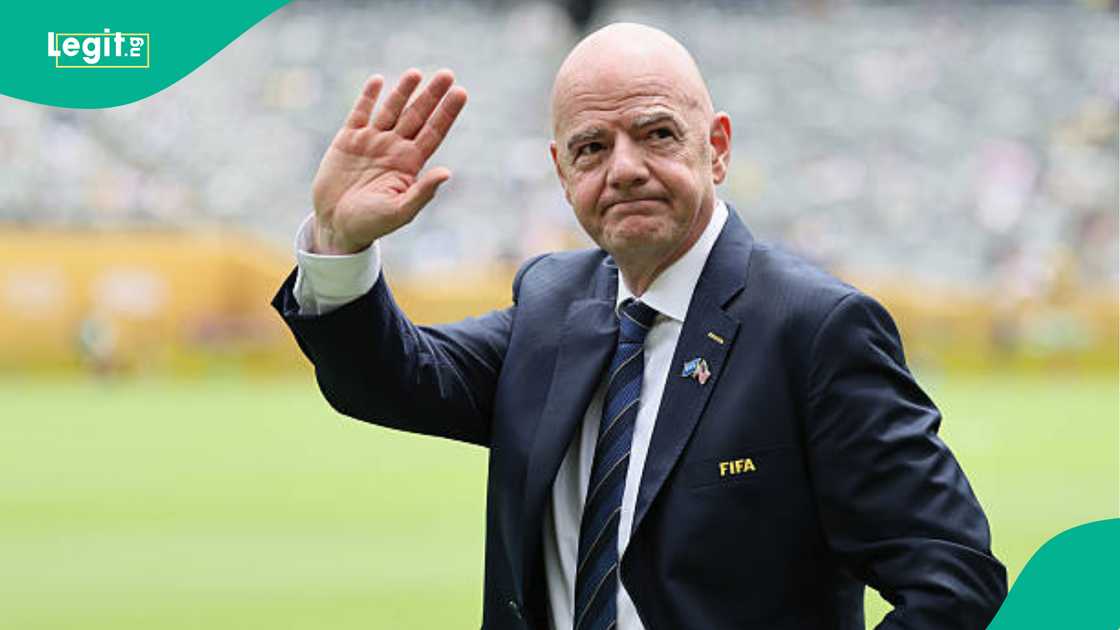
Source: Getty Images
One key reason is the 2026 World Cup final, which is scheduled for July 19, the latest summer final scheduled in over 50 years.
This later date has compressed the football calendar and is also expected to place more strain on both clubs and players.
Extending the September break and eliminating October from the schedule reduces the number of separate disruptions to the various domestic leagues.
Player welfare also played a central role in the decision as FIFA consulted clubs, federations, and players’ unions before approval.
Players who compete across different continents, especially Africans and South Americans playing in Europe, often face hectic travel schedules.
A single, extended break reduces back-and-forth trips and offers better recovery time.
How will FIFA's calendar change impact clubs?
With one fewer international window, there's less congestion across the season for football clubs.
National teams will only lose players twice after the summer instead of three times, freeing up one more week for league or European competition matches.
For the Premier League, this means matches will continue until the weekend of September 19 to 20 in 2026, pause for the international window, and resume on October 10 to 11.
During the break, international teams will play up to four matches. Importantly, there are no additional matches being added to the calendar. Teams will still play six matches during this period.
FIFA changes open door for psychological preparation – Expert
An exercise and sport psychology expert, Dr. Adekunle Ayodele Olusola, has said that FIFA’s restructuring of the international football calendar presents new opportunities for teams to strengthen their mental preparation ahead of the 2026 World Cup.
“The consolidated international breaks and later World Cup timing require teams to fundamentally reimagine their mental conditioning approaches,” he told Legit.ng.
Speaking on stress management, he emphasised that teams must align their psychological training with the new calendar.
“Teams must implement psychological periodization that aligns with the new calendar structure. The extended September break should serve as an intensive stress inoculation period, utilizing progressive pressure exposure and cognitive restructuring techniques. Players need systematic training in uncertainty tolerance and adaptive flexibility to thrive under the modified schedule rather than merely survive it.”
The expert also mentioned the need for building long-term motivation frameworks.
“Maintaining intrinsic motivation during extended gaps requires sophisticated goal-setting frameworks. Teams should construct motivation ladders with meaningful micro-cycles and purpose-driven training phases. The key is connecting daily activities to larger World Cup narratives while cultivating intrinsic rather than purely outcome-based motivation.”
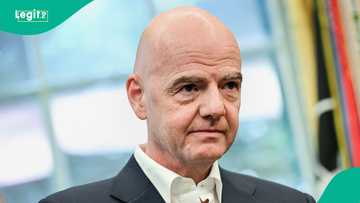
Read also
FIFA introduces new payout rule as Osimhen returns to Galatasaray injured from Nigeria duty
According to him, mental sharpness must remain a priority during extended preparation windows.
“Cognitive conditioning becomes critical during consolidated breaks. Implement attention training protocols, decision-making simulations, and systematic visualization programs. Technology integration through VR applications and biofeedback systems can maintain competitive cognitive edge during extended preparation periods.”
He concluded that teams who see the new structure as an advantage will be ahead of their rivals.
“Teams that embrace these changes as competitive opportunities rather than obstacles will gain significant psychological advantages. The new calendar actually provides unprecedented time for deep psychological work previously impossible with fragmented schedules.”
FIFA sanctions teams in World Cup qualifiers
Legit.ng also reported that the world's football governing body had released a list of teams sanctioned in the 2026 World Cup qualifiers.
This update from FIFA comes amid concerns for South African fans after Bafana Bafana fielded an ineligible player against Lesotho.
Editorial assistant Ololade Olatimehin provided exclusive commentary from a exercise and sport psychology expert for this report.
Proofreading by Bruce Douglas, copy editor at Legit.ng.
Source: Legit.ng

Chukwu Ikechukwu (Sports Editor) Chukwu Ikechukwu Godwin is a seasoned sports journalist with over a decade of experience across radio, TV, and online media. His career has seen him contribute his expertise to prominent media outlets such as Today FM, Wish FM, Silverbird Communications, and Sports Brief. Chukwu has covered prominent sporting events, including the African Wrestling Championship, NPFL matches, AFCON, and World Cup qualifiers, etc. Email: Chukwu.ikechukwu@corp.legit.ng

Adekunle Ayodele Olusola (Sports Psychologist and Mental Performance Expert) Dr Adekunle Ayodele Olusola, is a lecturer in the Department of Human Kinetics and Health Education, University of Lagos. Specialising in emotional regulation and mental skills training, he helps athletes achieve peak performance. He also teaches sports psychology at the Nigeria Institute of Sports and has numerous publications on therapy, physical exercise, and mental preparation for athletic excellence.


